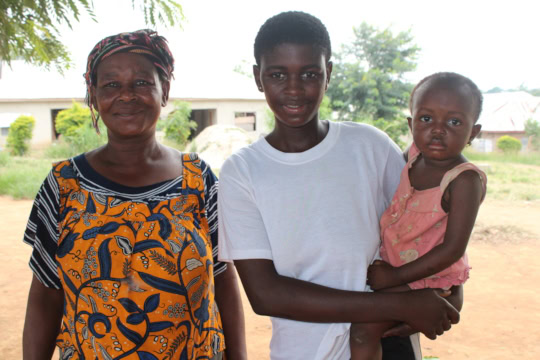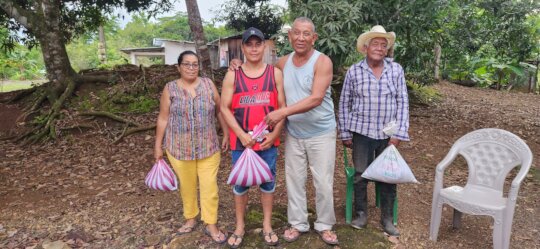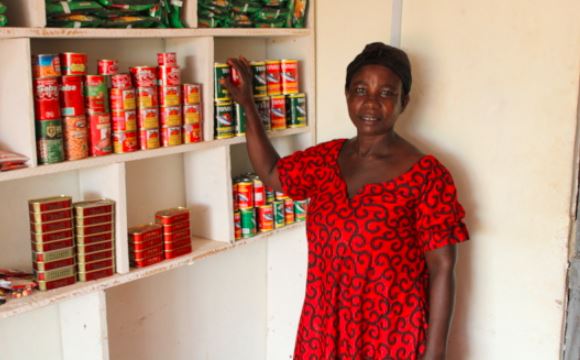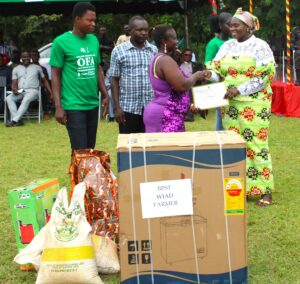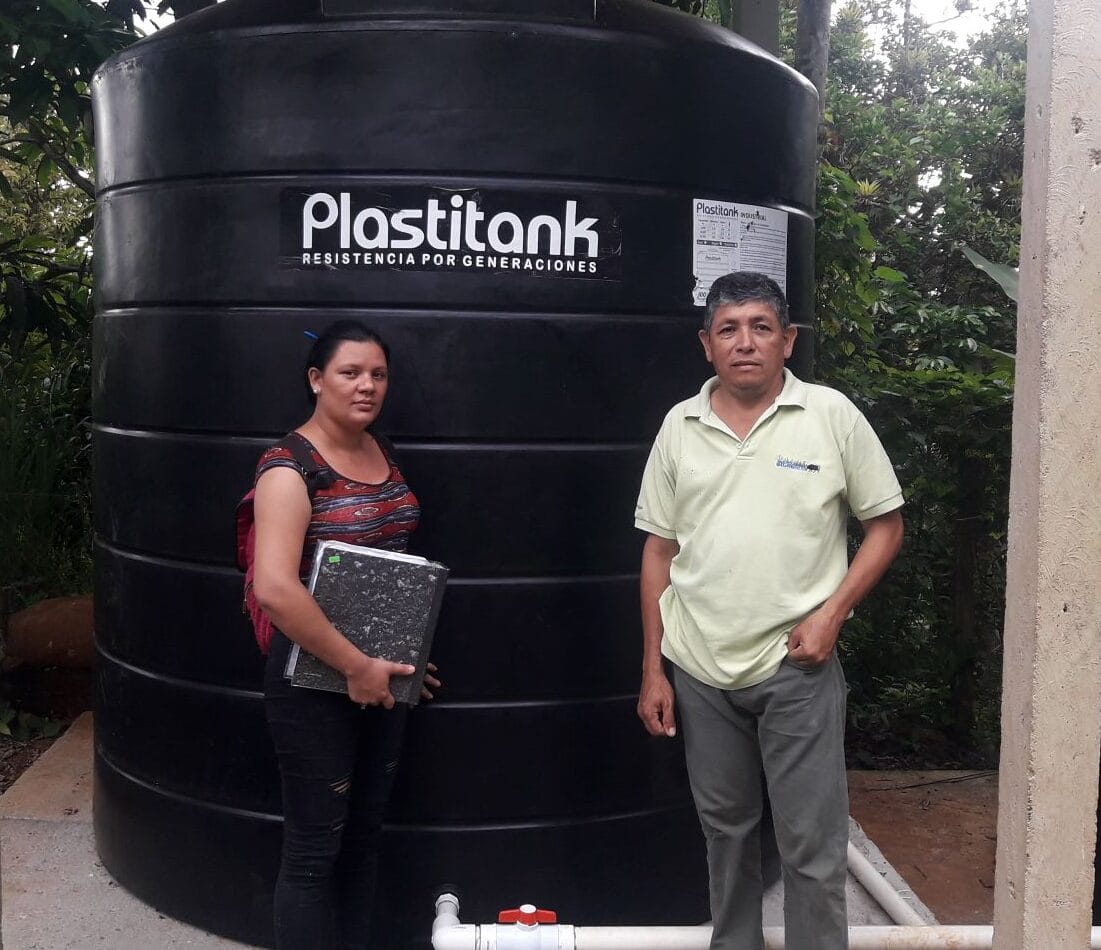
Los Angeles’ Water and Sanitation Committee is Able to Save Money and Make Investments
By Orlando Montiel Salas – Clean Water Program Officer
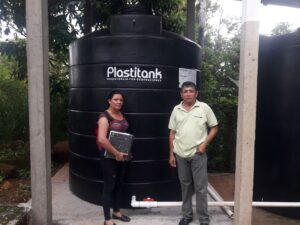
Geovany and Arlen in front of the water system.
Nueva Guinea is one of nine municipalities served by Self-Help International’s Clean Water Program in Nicaragua. In this area, 27 rural communities have had chlorinators installed in their water systems. In one of these communities, Los Angeles, there are 1,130 residents and water is distributed through a pipe network to 210 homes.
In 2015, Self-Help partnered with Los Angeles to bring safer drinking water to the community by installing a CTI-8 manual chlorinator in the community’s water storage basin and its associated plastic water distribution tanks. Self-Help didn’t only help the community access safer drinking water through installing a water chlorinator; Self-Help also provided technical advice and training to the community’s Water and Sanitation Committee (CAPS) directors so they could independently and sustainably maintain the water system.
As of 2021, the Los Angeles CAPS is led by five directors, but three of them haven’t been actively participating. The remaining two, President Geovany and Treasurer Arlen (who has also assumed the secretarial responsibilities), have worked very hard to administer and ensure the sustainability of the Los Angeles water system. Geovany has also taken on putting chlorine into the chlorinator, monitoring the chlorine, and doing all CAPS-related errands on his motorcycle .
In June 2021, Self-Help staff went to Los Angeles to talk with Geovany and Arlen and learn about the work they are doing as CAPS leaders and the sustainability of the water system. This is what the leadership shared:
“We have been leaders in the CAPS since October 2017. By October 2021, we will have served four years, which is two terms – we were re-elected by the community after our first term for administering the CAPS well.
“Self-Help taught us how to calculate water rates and how to administer our water system. We received the water rate calculation training in March 2018 and the water system administration training in March 2019.
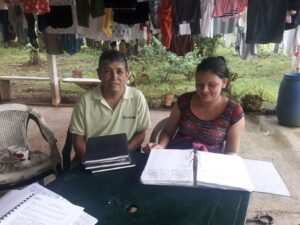
Geovany and Arlen in training.
“In each training, we received explanations on how to apply what we learned, and we were supplied with manuals on the chlorinating system so that we could study and strengthen our knowledge.
“There was a community assembly regarding the cost per cubic meter of water, and community members proposed a price of 3 cordobas (C $ 3). We were able to apply what we learned from the training in the discussion, and we proposed C $ 7 per cubic meter of water instead because we knew that all maintenance and operation costs of the water system had to be included.
“We charge a minimum cost of C $ 30 for 5 cubic meters, and for any additional cubic meter beyond five cubic meters, we charge an additional C $ 7.
“The training sessions have helped us to improve the administration of the CAPS and to assess a water rate that is both affordable for our community members and allows us to cover expenses. This ensures the maintenance and sustainability of the water system that we have.
“Each month we spend between C $ 735 to C $ 1,000 in order to purchase between seven to ten chlorine tablets. This makes sure that our water stays chlorinated so that community members have safe drinking water.
“We charge for water services on the first day of each month and charge again after eight days. Anyone who doesn’t pay after the second charge falls into default and is given up to two months to pay the balance. If, at this time, the user doesn’t pay, water service is cut off. At present we have a 15% payment delinquency.
“During the period that we have been managing, our CAPS has pooled its own funds together to make investments in our community’s water system. The chart below details what we have done.
“We also have monthly expenses due to the operation and maintenance of the water system, which you can see in the second chart below.
“We have an average monthly income of C $ 12,000 and a monthly disposable fund of C $ 5,000 after all of the expenses for maintaining the aqueduct. Since assuming our leadership roles three and a half years ago, our CAPS has accumulated C $ 155,488 cordobas, which is in the bank. We have been able to save that amount thanks to the rate we charge for water, which we learned from all of the training and support Self-Help has provided.”

Chart 1: Investments Made by Los Angeles CAPS

Chart 2: Monthly Expenses of Los Angeles CAPS

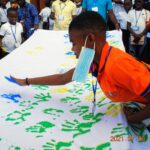 Previous Post
Previous Post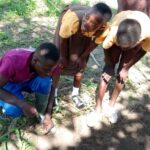 Next Post
Next Post